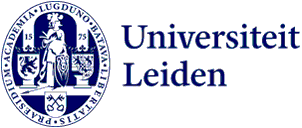
From pioneer to leading institution: 40 years of the Institute of Air and Space Law
What started as pioneering work, has evolved over decades to become a renowned institute in 2025 with an internationally acclaimed master's programme. 'Almost everyone involved in the aviation and space sector knows us in Leiden.'
Leiden has a long and distinguished tradition in the field of air and space law. In 1938, Professor Daniel Goedhuis became the first person in the Netherlands appointed to lecture on air law. A professorship followed in 1947, which was the first in the world to be expanded to include space law in 1961. This combination of air and space law within one chair was unique. Professor Goedhuis held the chair until 1977. His successor, Professor Henri Wassenbergh, played a key role in establishing the Institute of Air and Space Law in 1985, another first in the Netherlands.

As professor by special appointment, Henri Wassenbergh taught an elective course on air and space law one day a week. 'He’d wanted to set up a specialist institute for years,' says Assistant Professor Tanja Masson-Zwaan: 'That fitted in well with his work in the aviation sector and was in line with the major developments that were taking place in air and space law at the time.'
Early years
Wassenbergh turned out to be a skilled networker: in 1985, he managed to convince the then dean, professor Peter Kooijmans, to dedicate funding to create an Institute of Air and Space Law. The aim was clear: the institute would disseminate knowledge about air and space law, both nationally and internationally.
As a student, Tanja Masson-Zwaan followed Professor Wassenbergh’s elective course and became interested in the field of study. After graduating in International Law, she and Pablo Mendes de Leon were appointed as the first managing staff of the institute. ‘Pablo was passionate about aviation law, and I was fascinated by space law. We were both able to develop our interests further into two separate, but interconnected specialisations’, says Masson-Zwaan.
According to her, the early years at the Institute focused mainly on research. ‘We were organising national and international conferences, where we welcomed leading figures in the field. These events produced conference proceedings, the publication of scholarly articles and books. We did everything ourselves: it really was uncharted territory.’
The Institute’s main focus was networking, sharing knowledge and actively contributing to academic debate. During that time, teaching on the subject was not a structural part of the Institute’s activities and was only offered as an elective course.
-
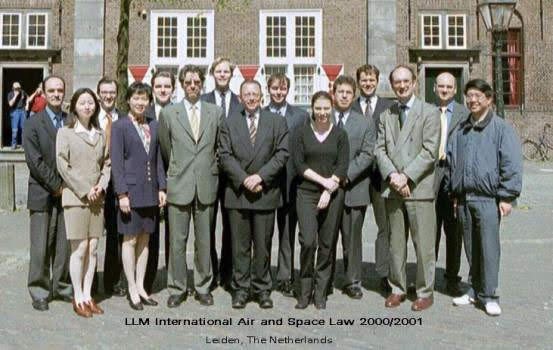
The first class of the Advanced LLM in Air and Space Law in 2000 -
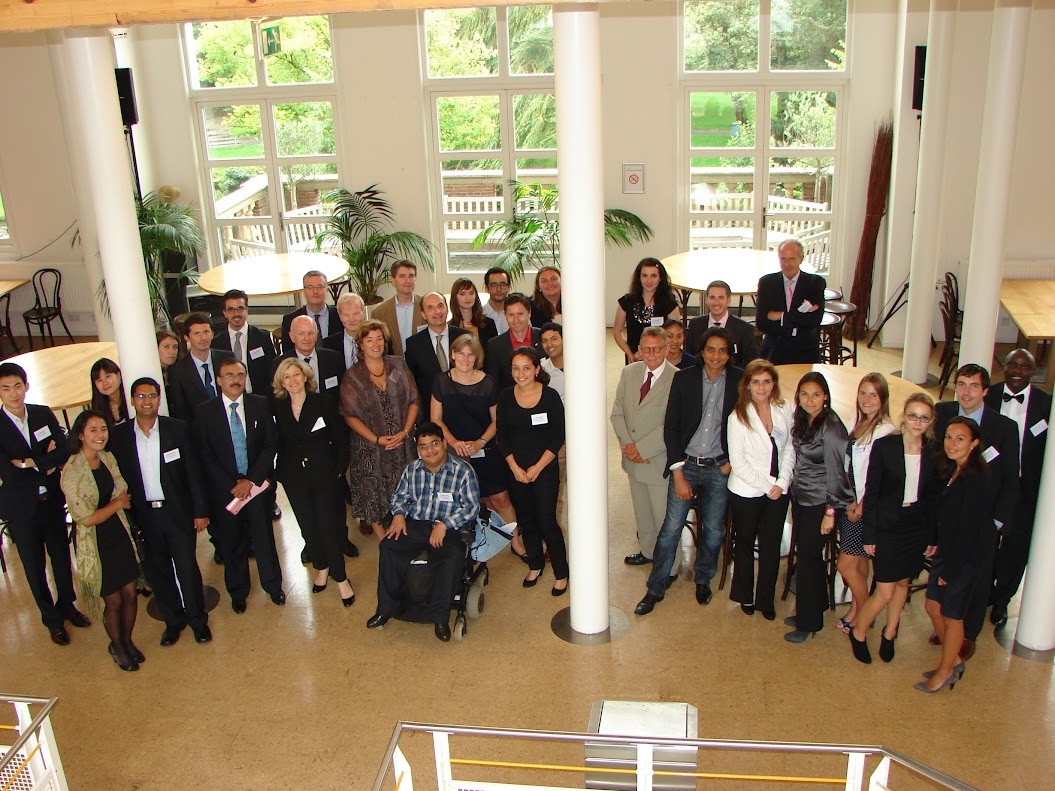
25th anniversary of the International Institute of Air and Space Law -
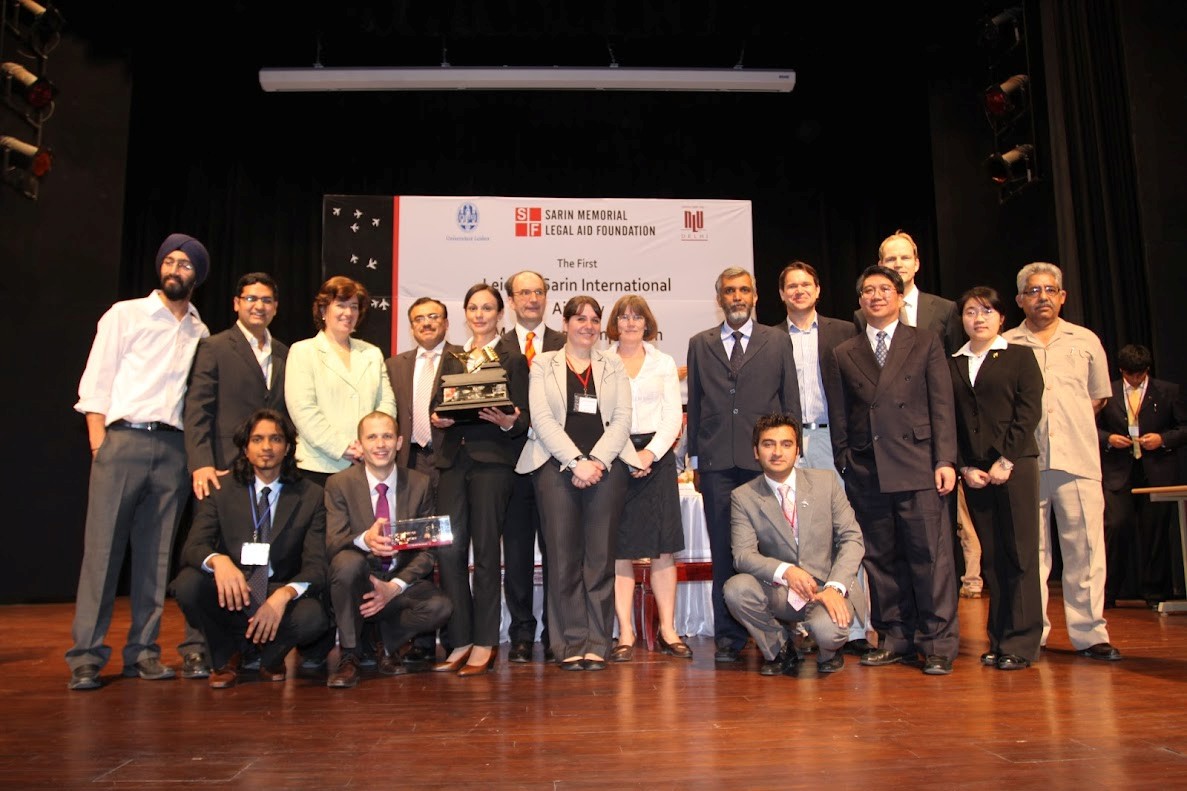
The first Leiden Sarin international air law moot court in 2010 in Delhi -
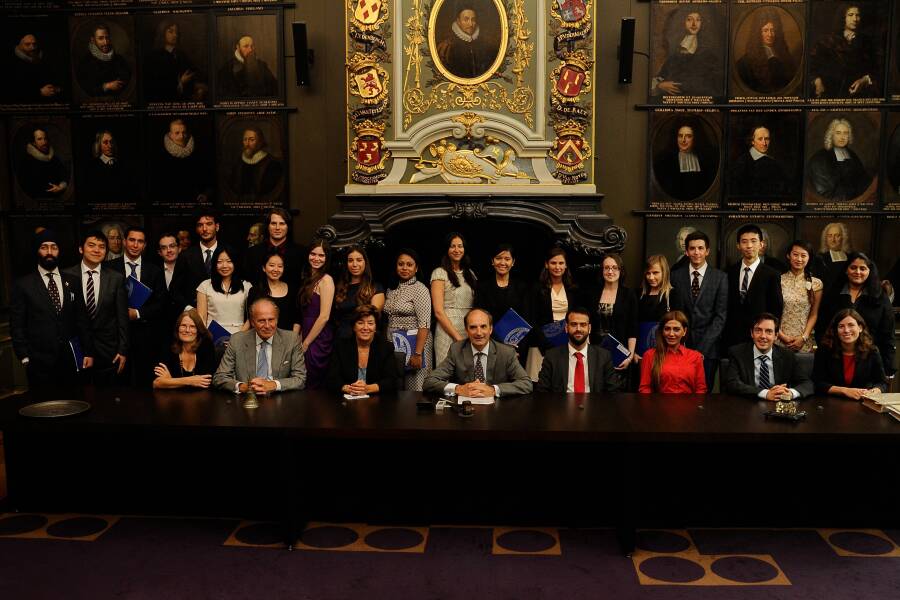
Class of 2014 -
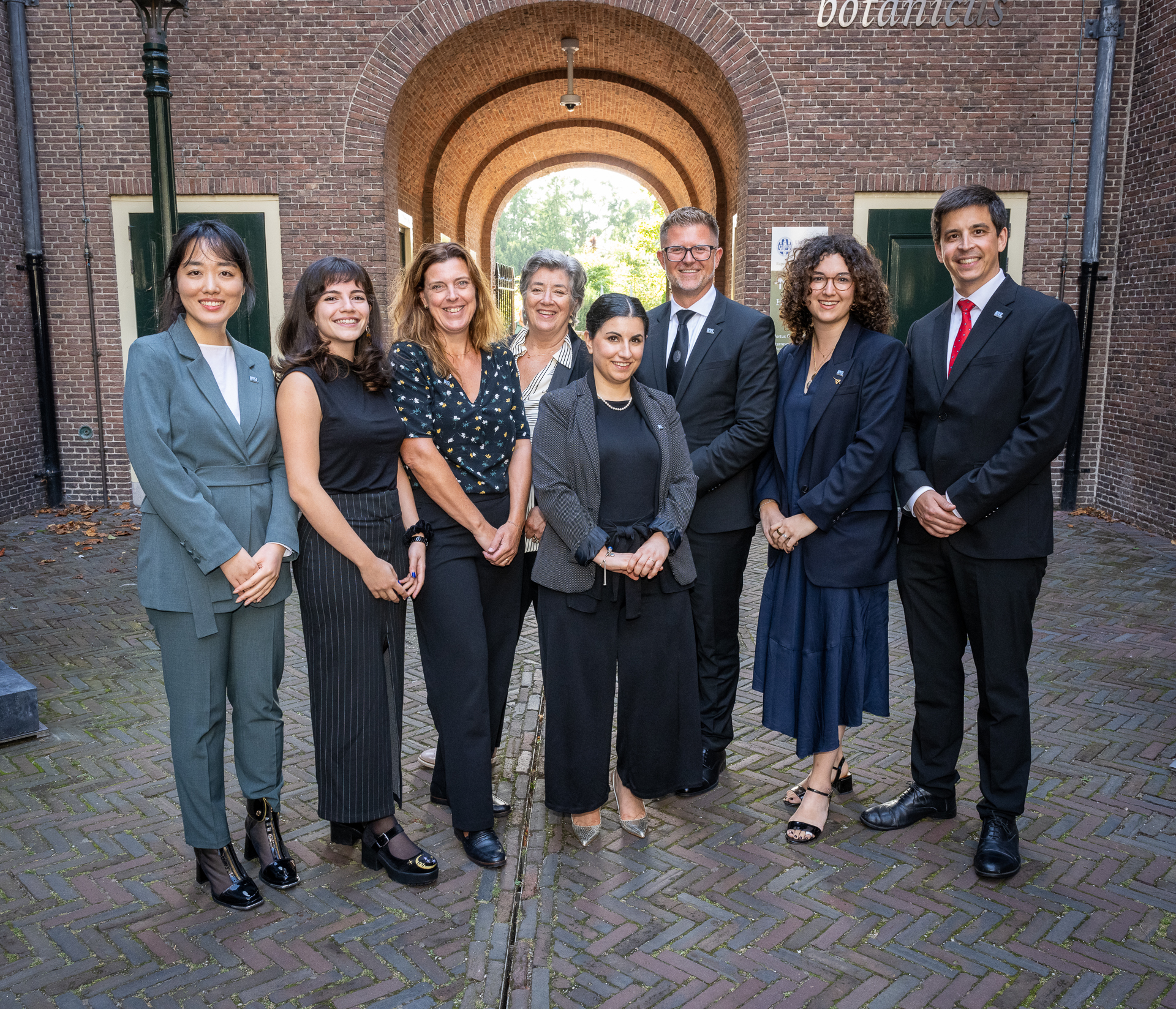
The current staff of the International Institute of Air and Space Law
Advanced Master
That changed around the turn of the century with the launch of the Advanced Master Air and Space Law, which is celebrating its 25th anniversary this year. The driving force behind this new master’s programme was Professor Wassenbergh’s successor, Professor Peter Haanappel. ‘The Advanced Master meant that teaching at our institute now had a structural position within the faculty,’ says Masson-Zwaan. ‘We can be very grateful to Peter Haanappel for that.’
According to Steven Truxal, Professor of Air and Space Law and the current Director of the Institute, the Advanced Master programme has been hugely successful for many years. ‘What makes the programme so unique is the clear focus on practical experience. Last year, we welcomed around 60 prominent guest speakers, most of whom are alumni.’
An internship is also a mandatory part of the programme’s curriculum, so that students can acquire relevant practical experience during their studies. ‘So, the master’s programme combines a solid academic basis with a clear practical focus’, Truxal continues. ‘And this approach also has a strong international orientation. This programme brings Leiden to the world, and the world to Leiden.’
Collaboration
In 2020, Steven Truxal succeeded Pablo Mendes de Leon as Professor of Air and Space Law. The successful master's programme and the international reputation of the institute were important reasons for him to settle in Leiden. 'Almost everyone who works in the aviation and space sector knows our institute in Leiden,' he says. 'As Director of the Institute, I’m proud to see how widely spread our alumni are worldwide and what valuable work they do.'
According to Truxal, the Institute has undergone quite a transformation in recent years: ‘Until a few years ago, we were a bit like the odd one out. The institute was too isolated and had little connection with the rest of the faculty.’
Now the Institute is clearly embedded within the faculty and there is much more collaboration with other departments. Recent years have also witnessed structural, multidisciplinary collaborations with sister universities. ‘Within the field of both air and space law, we participate in the LDE collaboration with Erasmus University Rotterdam and TU Delft’, explains Masson-Zwaan. ‘Together, we organise multidisciplinary projects, such as a thesis lab on circular aviation and a specialised honours programme: LDE Space & Society.’
Reaping the benefits
Forty years ago, the Institute of Air and Space Law was founded with the aim of disseminating knowledge about the field more widely. Now, in 2025, the institute is an internationally leading authority, which trains large numbers of professionals from all over the world every year with its successful master's programme. ‘Our way of teaching, inspired by the Leiden University motto ‘Praesidium Libertatis’ (Bastion of Freedom), continues to attract students’, says Masson-Zwaan. ‘Also, our network of active alumni is extremely rich, and we’ll hopefully continue to reap the benefits from that.’
Truxal adds: ‘Arguably, the institute is something for our law faculty that is not only a ‘nice to have’ but a ‘need to have’. Taken together, our growth in staff and greater connection with the rest of the faculty is an important milestone. Especially when you consider the sustainable future of the Institute.’ The professor believes it is important to continue on this path. ‘Our strong position within the faculty, the university, and our field of expertise is something we must consolidate and cultivate for future generations.’
To mark the 40th anniversary of the Institute of Air and Space Law and the 25th anniversary of the Advanced Master Air and Space Law, the Institute is organising an anniversary symposium especially for alumni. On 29 August, around 175 former students will return to our faculty to reflect on 40 years of Air and Space Law in Leiden, current developments in the field, and to raise their glasses to the future.
Congratulations from the Faculty Board
Our faculty has a long and rich tradition in air and space law. After the establishment of the world’s first chair specialising in the field in 1961, the founding and further development of an international, highly specialised institute was only a matter of time. From 1985 onwards, the Institute of Air and Space Law has developed into a leading centre of expertise at the intersection of law, aviation and space exploration. The Institute has gained a prominent position both nationally and internationally, putting Leiden Law School firmly on the map.
The Faculty Board congratulates the Institute on this special anniversary. The Board is proud of the extensive anniversary event that will take place on Friday 29 August, with many alumni returning to the faculty, and looks forward to future developments and collaborations, where colleagues from the Institute of Air and Space Law will continue to play an important role.
